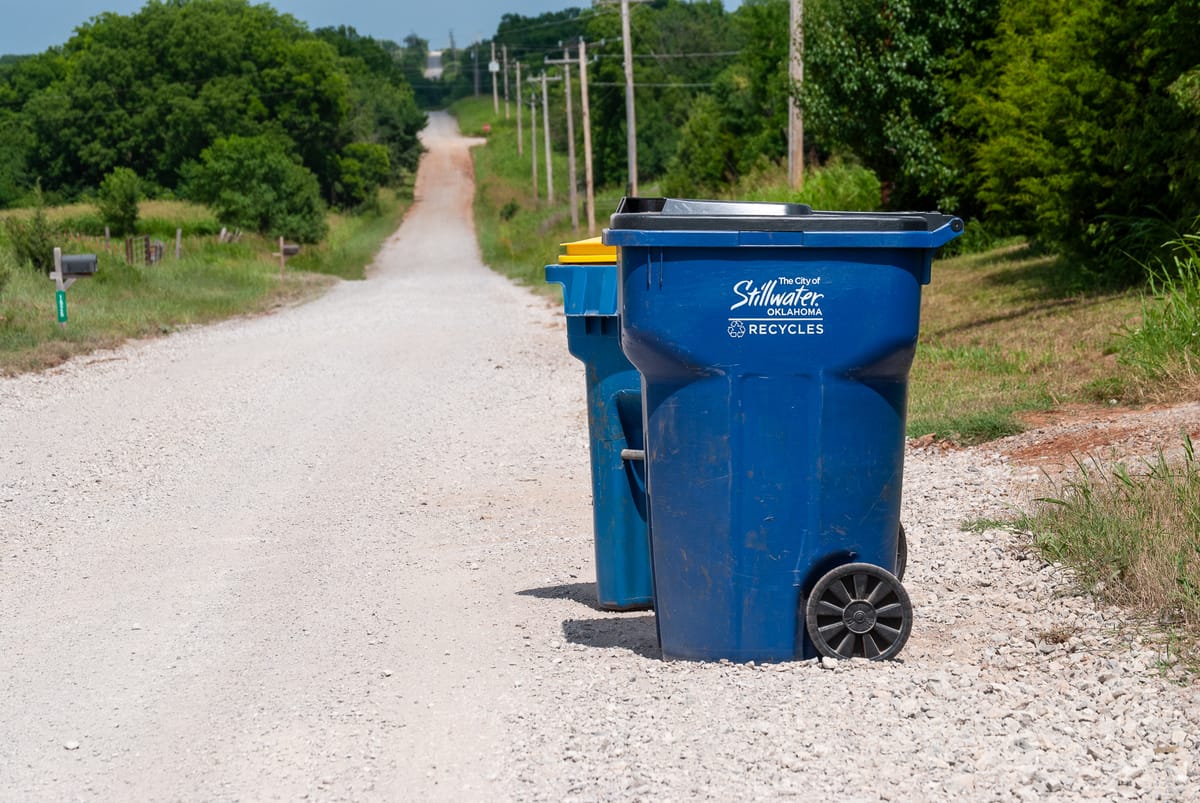

The Stillwater City Council unanimously approved waste management rate increases that will affect residential, commercial, and roll-off customers beginning Jan. 1, 2026.
The approved increases represent the first comprehensive adjustment to waste management rates in four years, reflecting the cumulative impact of inflation, equipment costs, and operational challenges facing municipal waste services nationwide.
Implementation begins Jan. 1, 2026, with subsequent annual adjustments through Jan. 1, 2030, providing predictable rate progression for customers while ensuring the department maintains financial stability and service quality.
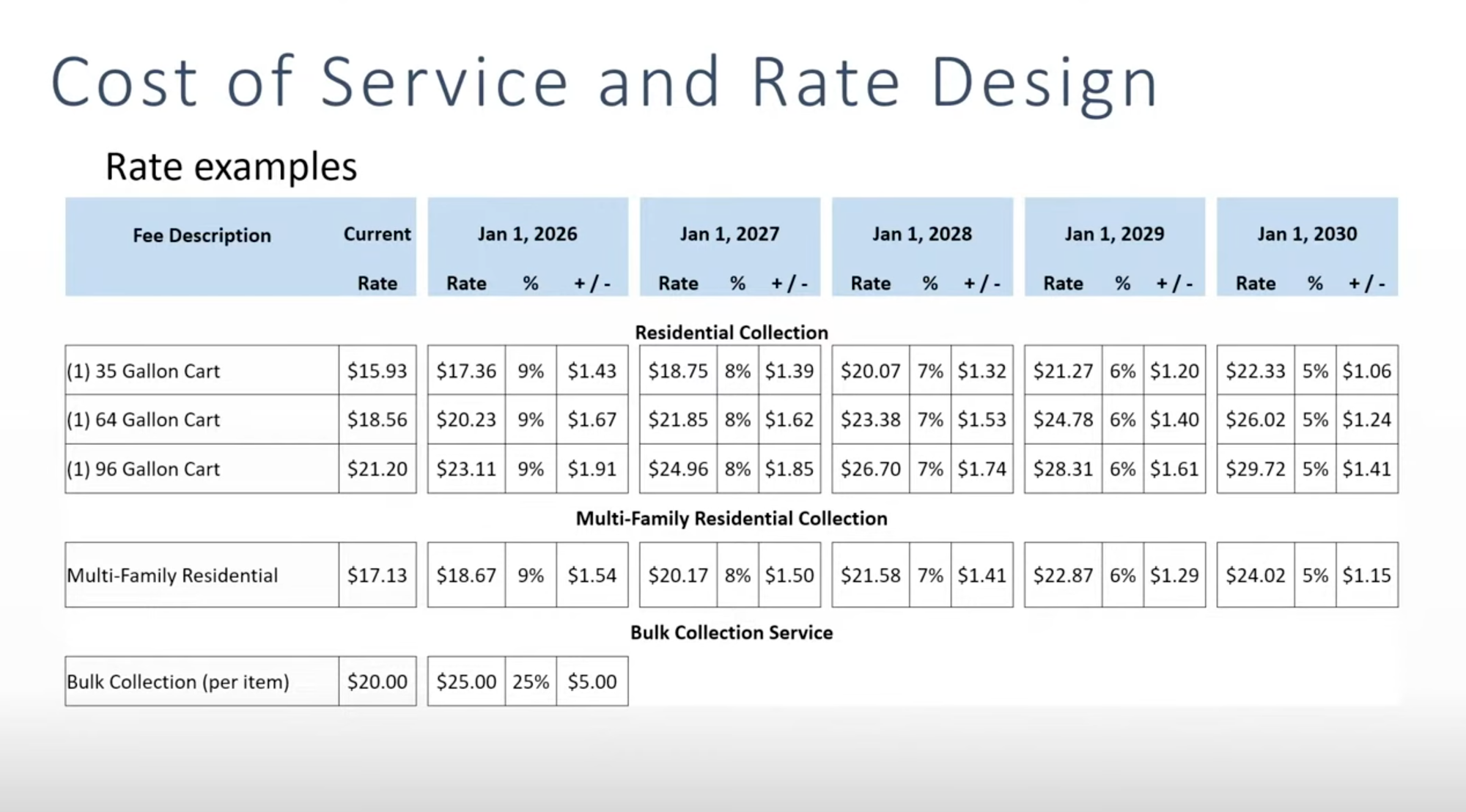
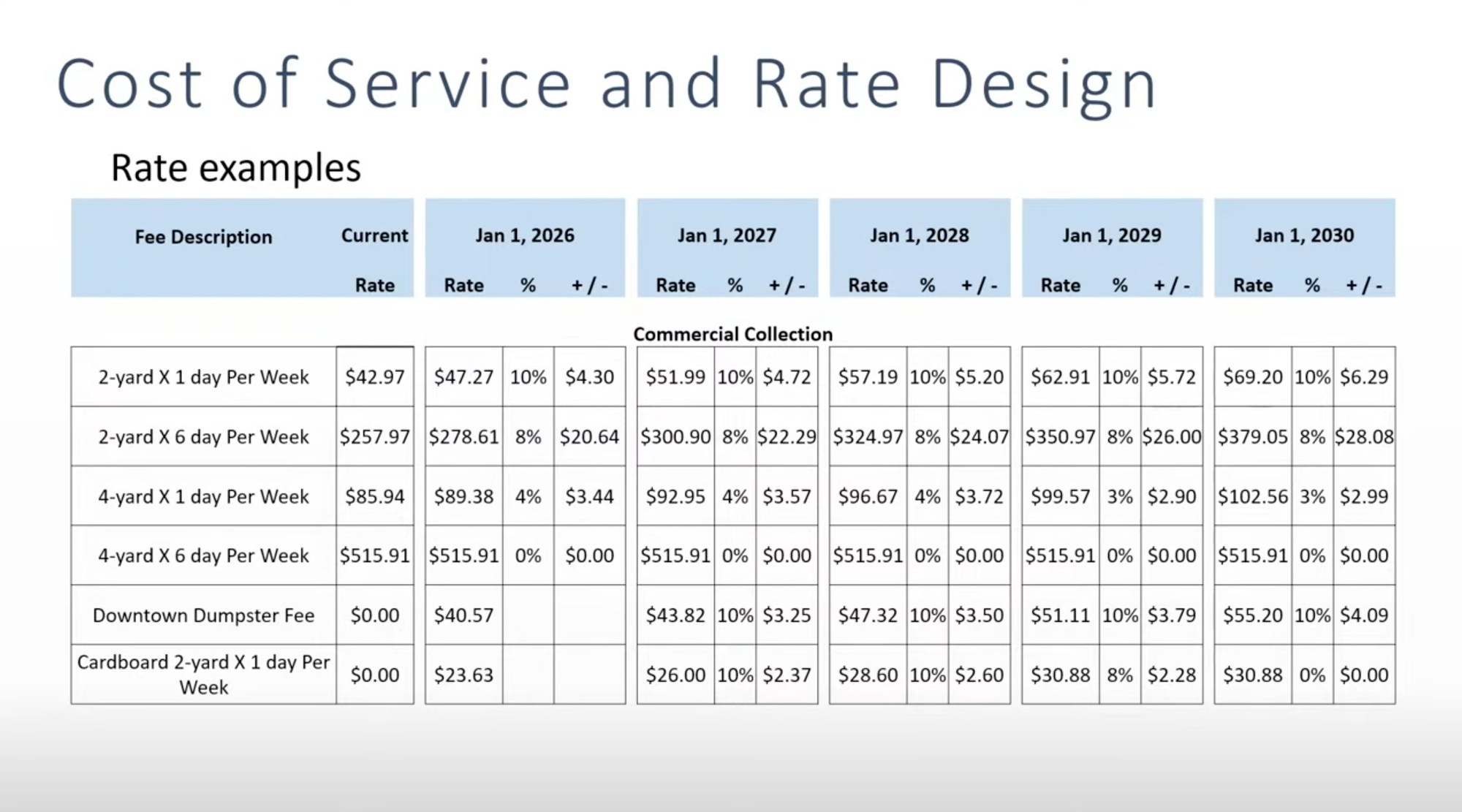
Example year-over-year rate increases for residential and commercial customers.
The rate adjustments, recommended by consulting firm NewGen Strategies following an operational assessment, aim to address rising costs in equipment, staffing, and disposal services that have strained the city's waste management budget.
Waste Management Director Matt Faulkner presented the changes to the council, explaining that the department faces significant cost pressures across multiple areas. "Equipment supply chain inconsistency are still a problem. ... We have all CDL drivers in our department. We're constantly competing with construction, concrete, transportation and even other solid waste providers," Faulkner said in the Sept. 8 meeting.
Residential customers and commercial customers will see annual rate increases from 2026 through 2030.
96-Gallon Residential Cart: Cost & % Increase (2025–2030)
Commercial 2-Yard x1/week: Cost & % Increase (2025–2030)
Source: City of Stillwater agenda packet. Charts by The Stillwegian.
Commercial customers will face increases for both existing services and a new downtown dumpster fee structure. The downtown fee replaces the current shared dumpster system for 30 specific dumpsters in the downtown corridor.
"Currently they're playing our shared dumpster fee, which is a fee that we will still have because there will be a few places outside of that corridor that will do a shared dumpster. But this would be a new fee for the 30 specific dumpsters to that corridor that those folks would pay for," Faulkner explained.
The impact on downtown businesses varies depending on their current service level. Businesses with two-yard dumpsters serviced twice weekly may see slight decreases, while others could face increases up to $10 monthly.
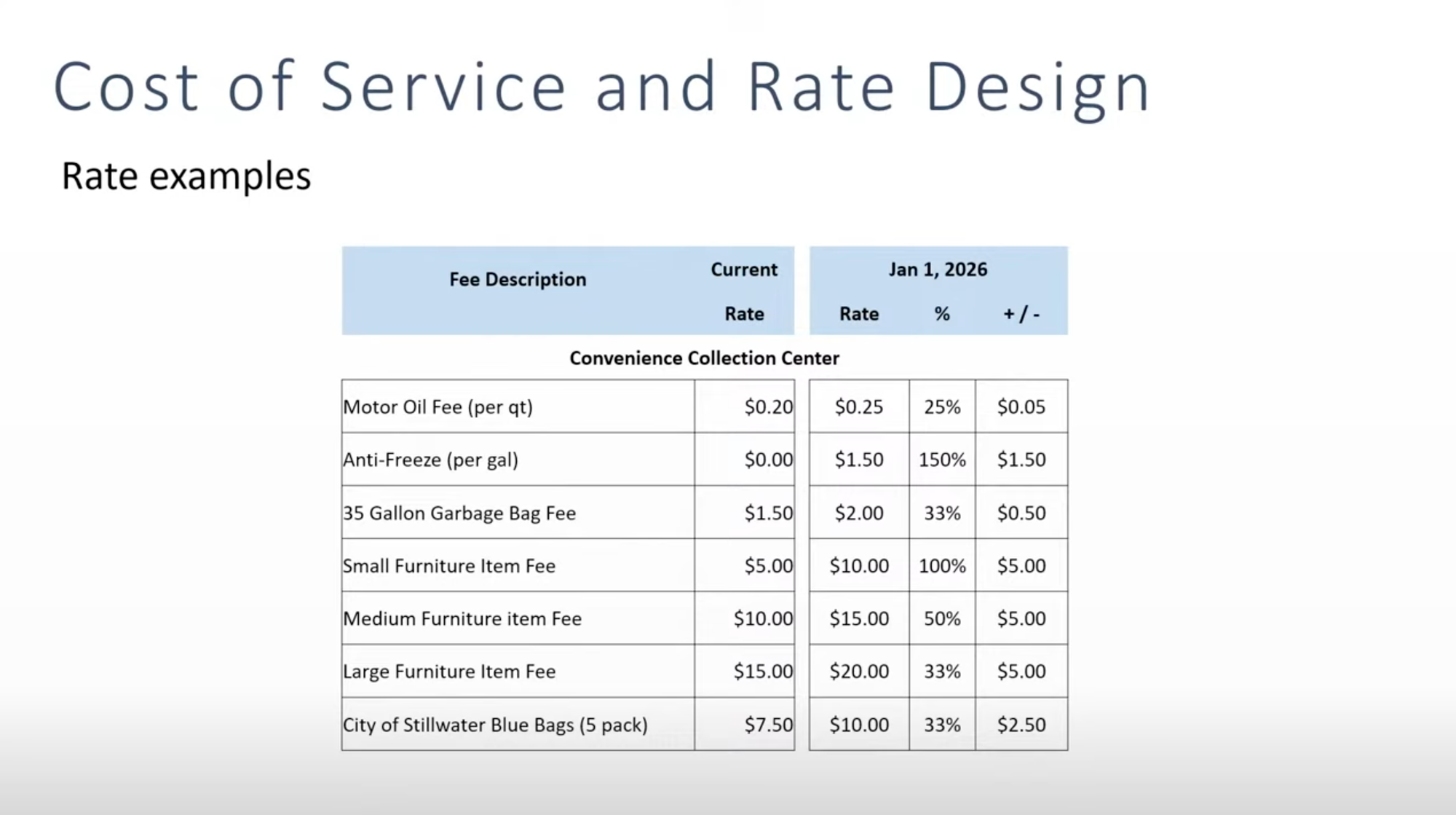
The city's collection center will also implement fee increases for items requiring paid disposal, though standard recycling services for paper, cardboard, plastic, tin, and aluminum remain free of charge. Faulkner noted that collection center disposal fees have not changed since the facility opened.
NewGen Strategies' analysis revealed that waste management equipment costs continue rising significantly. Automated residential side-loaders see annual increases of 16 percent, rear-load commercial collection trucks increase 7 percent annually, and roll-off equipment rises 11 percent per year.
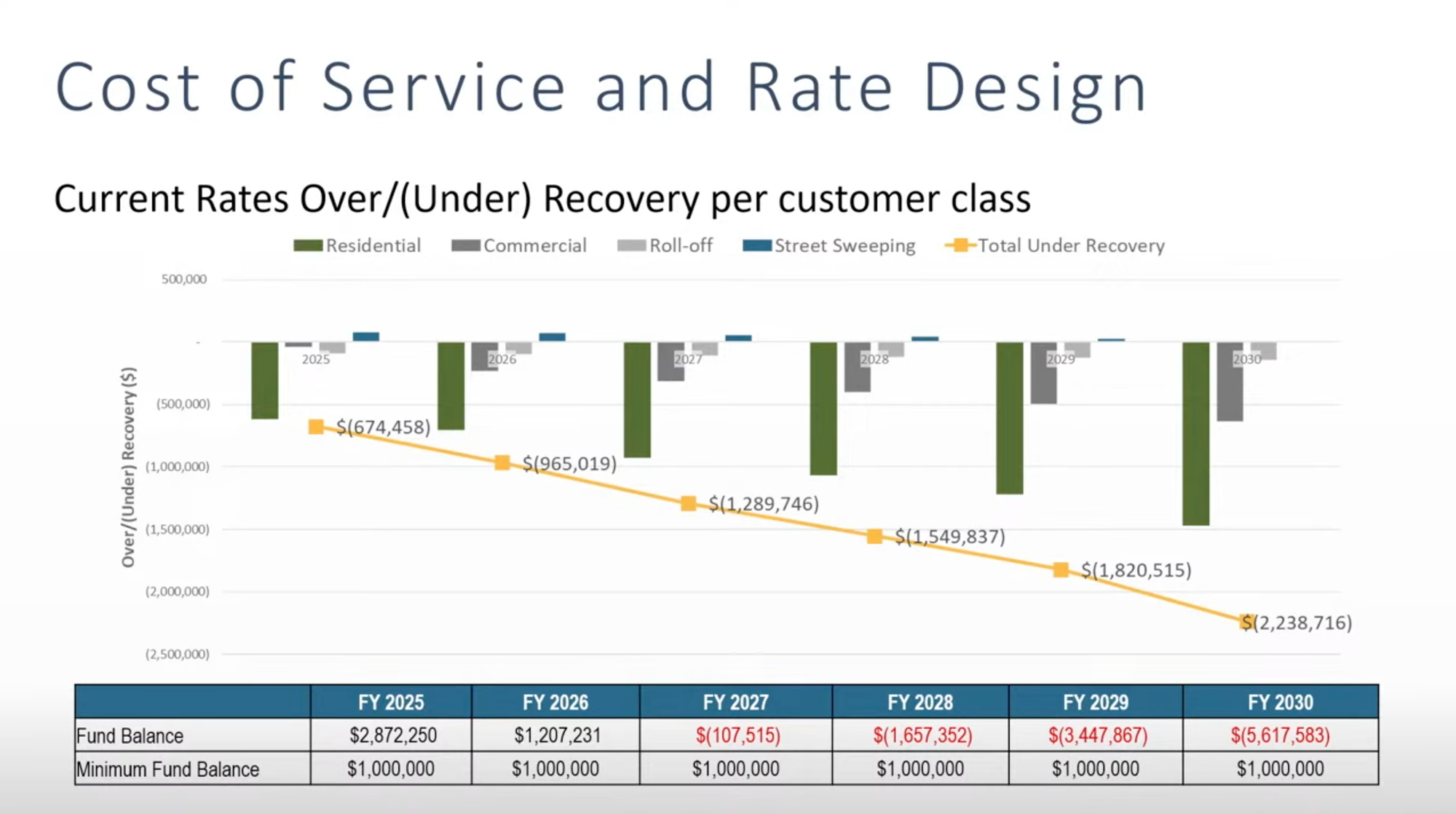
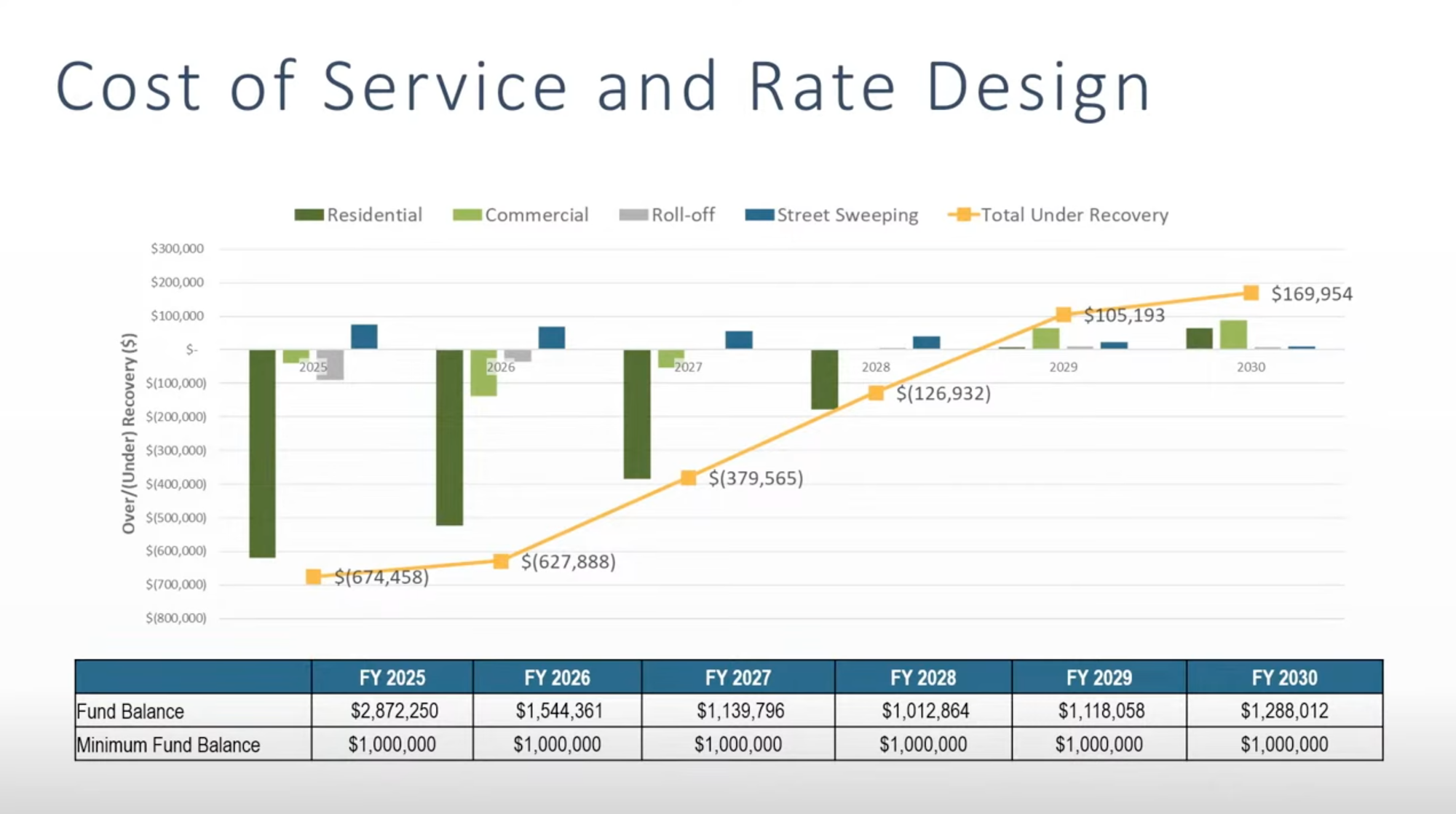
The consulting firm determined that Stillwater's waste management department operates efficiently in its current services but identified opportunities for improvement. "NewGen determined that waste management is operating efficiently in terms of current services providing. However, introducing new services like from front load commercial collection would make us more efficient," Faulkner said.
The city plans to explore implementing front-load commercial collection services in the future to enhance operational efficiency.
The approved rate structure projects the waste management department's budget will return to positive territory by 2029. Without the increases, the department faced continued deficits that would have depleted reserve funds needed for equipment purchases and operational stability.
A message from Visit Stillwater
From OSU Family Weekend and Cowboy Football to pumpkin patches, craft shows, and more, September is packed with traditions and celebrations. Experience the season in America’s Friendliest College Town!
The rate increases follow industry trends, with the city experiencing annual cost increases of 4.2 to 5.7 percent based on Consumer Price Index and Producer Price Index metrics. These increases affect everything from major equipment purchases to personal protective equipment for employees.
Fuel and steel price volatility add additional uncertainty to operational costs, while disposal and recycling processing fees continue climbing annually.
The resolution also applies to the Stillwater Utilities Authority, which approved the identical rate structure during its meeting following the city council session.
📺 Watch the Waste Rate Schedule Presentation

